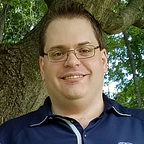Of Hypothesis and Paranoia, Part 3
With life and learning comes perspective. In October 2017 and August 2021, I survived two of the most severe incidents of paranoia I have ever experienced. Everything happens for a reason. Late last summer, I wondered whether my past history of chronophobia, or fear of time, was connected to my autism. As it turned out, I was correct. I was late-diagnosed at age 37. As a result, I was unable to properly integrate into society.
I feared I was running out of time as I fell behind my peers. Eventually, the chronophobia was strong enough to be diagnosed. By re-examining it, I proved what the source was and de-pathologized my diagnosis. Now that I take autism seriously, a closer look at my schizotypal personality disorder reveals a similar discovery. If I am correct, it changes how personality disorders apply to autistic people, regardless of age.
The basis for my hypothesis is thanks to one person: Dr. Damian Milton. In his Double Empathy Problem Theory, Dr. Milton outlines what he refers to as the double empathy gap. If two people have different methods of communication, a gap in understanding and empathizing with the other person will occur. This double empathy gap increases the chances for problems such as bullying, discrimination, and societal integration.
Autistic people are known to develop a neurotype that diverges from what is typically found and accepted. This can be observed with behaviors such as monotropism (stronger focus on interests), stimming (repetition that regulates executive function), and info-dumping (intense sharing of interests). An individual’s quality of life will decline if the double empathy gap consistently has a negative impact on them. Does it?
What caused such a profound fear of time that a mental health professional diagnosed it? My inhibited social and economic integration. What caused it? Not having my autism identified or accommodated soon enough. What caused this to happen? The persistence of prejudice and ignorance by the dominant neurotype in society (non-autistic). And what caused it? The double empathy gap consistently negatively impacts autistic people.
Everything happens for a reason. A diagnosable phobia is not a positive behavior a person wants to engage in. Neither is having your support needs neglected until you develop post-traumatic stress (Monotropism Employment Theory). My Autistic Chronophobia Theory proves that Dr. Milton’s double empathy gap does adversely affect autistic people. How does this apply to my schizotypal personality disorder?
Am I born with a personality deficiency that forces me to experience paranoia or severe social anxiety? Or is my paranoia being caused by repeated conflicts with the double empathy gap due to my autistic neurology? The earliest instances of minor paranoia I can remember were mostly in dating situations. I would make contact with someone who I was interested in and get a response back, but their contact would cease.
This is what is referred to as ghosting. Ghosting typically happens when you make social contact with someone, during which they may read your digital messages, but after a socially acceptable time, they do not respond. It was not until after I was diagnosed as autistic that I learned I was experiencing miscommunications that were often related to dating. The more it happened, the more paranoid I felt. This indicates a progression.
If we take a look back at October 2017, we will find evidence supporting a progression that was caused by repeated conflicts with the double empathy gap. Ask yourself if my paranoia was irrational or logical. I was of sound mind and judgment when I purchased the bus tickets. I concluded that if another emergency occurred, my fellow trainees would be spared the expense and ensure we would be efficiently prepared.
When I was accused of lying about the tickets, my history of miscommunications asserted itself. I recognized a pattern of social problems up until that point in my life. Since they had been toxic in nature, my anxiety was triggered as a defense. When updates were withheld from me, I anticipated what would happen by recognizing a pattern of predictability from past experience. This is valid evidence of neither instability nor a defect.
This is a pattern of logical behavior by someone who has a history of repeatedly being bullied, traumatized, and taken advantage of. Everything happens for a reason. By the time I was accused of misconduct on August 31st, 2021, my reaction was so severe that it triggered an act of suicide furtherance. The more social rejection I encountered, the more paranoid I felt. I recognized a pattern of repeated rejection. Not irrational nonsense.
The more that Dr. Milton’s double empathy problem occurred, the more I expected it to happen again. Why? The more autism is pathologized as a defect instead of being taken seriously, the more we suffer. No one wants to be bullied. No one wants to be traumatized. No one wants to be taken advantage of. No one willingly wants to feel the disruptive effects of paranoia. Especially autistic people.
My hypothesis about the pathology of autism and paranoia is clear.
Reread my Autism & Paranoia Series here in Part 1.
